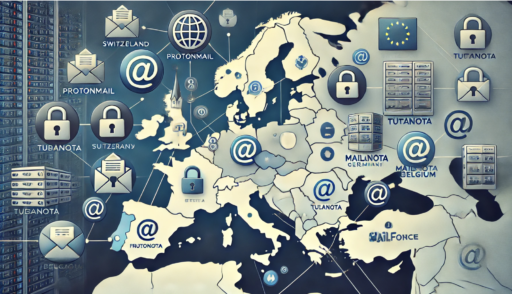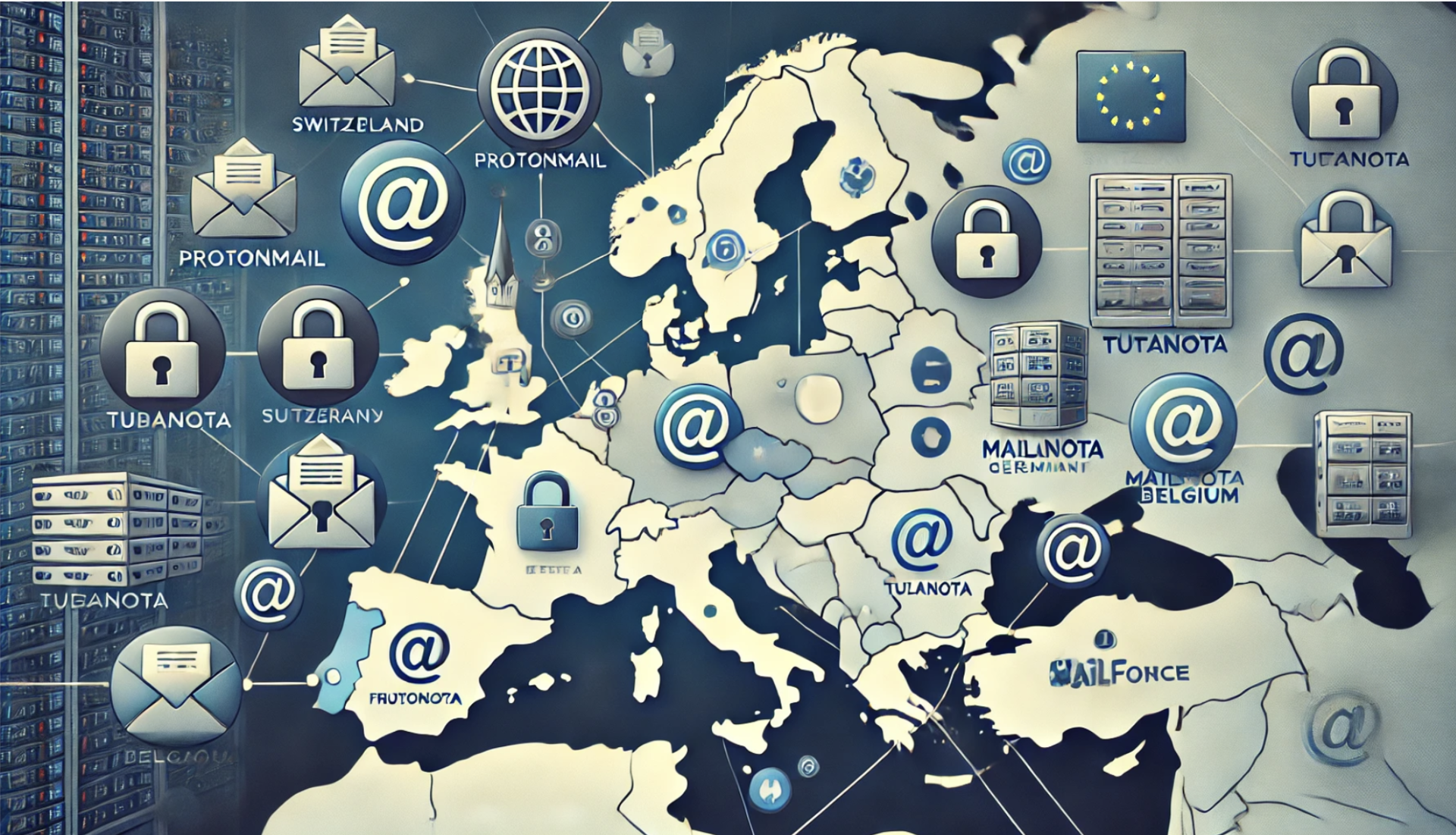Email might not spark the same buzz as cutting-edge chat apps or next-gen social networks, but it’s still the unsung hero of our digital lives—quietly delivering our messages, bills, and cherished cat memes day in and day out. Lately, though, there’s been a growing shift toward European email providers, and it’s not hard to see why. Thanks to the EU, EEA, and EFTA’s stringent data protection measures, crowned by the General Data Protection Regulation (GDPR)—Europe has shot to the forefront of secure and privacy-focused communication.
From robust encryption protocols to transparent data policies and ironclad servers, European services offer a level of reliability that privacy hawks dream about. In this article, we’re spotlighting five of the continent’s most prominent providers. We’ll break them down using four essential metrics:
- Security: Encryption protocols, security features, and data center practices
- Anonymity: Minimal data collection, anonymous sign-up options, and privacy protections
- Usability: Interface design, extra tools (calendars, contacts, etc.), and day-to-day simplicity
- Price: How free and paid plans stack up, plus storage limits and overall value
Where possible, we’ve also tossed in approximate user statistics to give you a feel for each service’s popularity and scale. If you’re ready to swap overcrowded inboxes for data protection done right, read on. It’s time to meet Europe’s email all-stars.
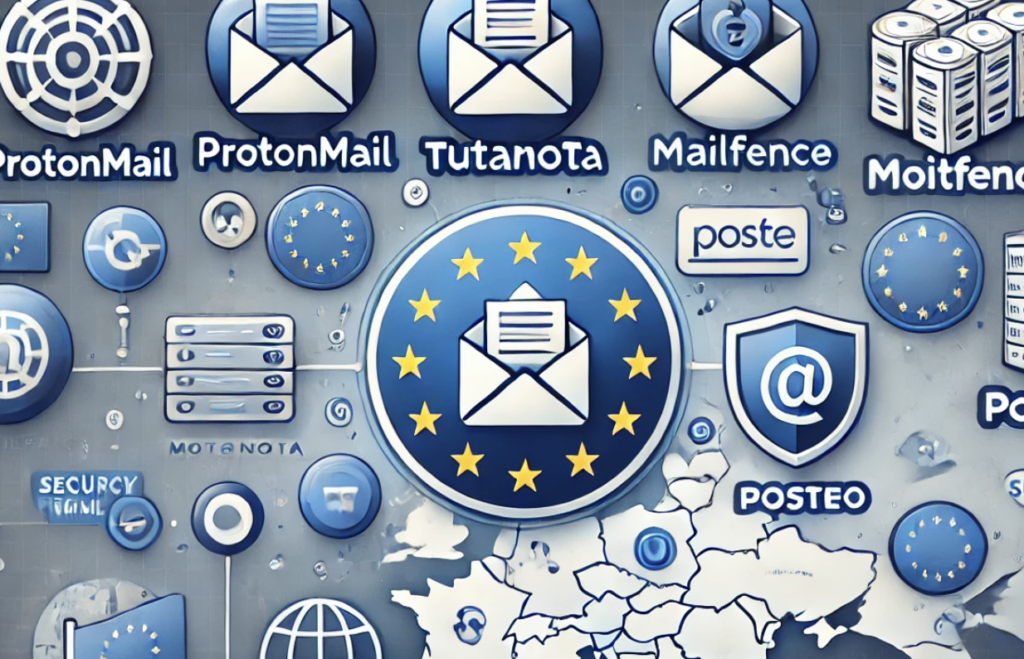
The Top 7 European Email Providers Top 7:
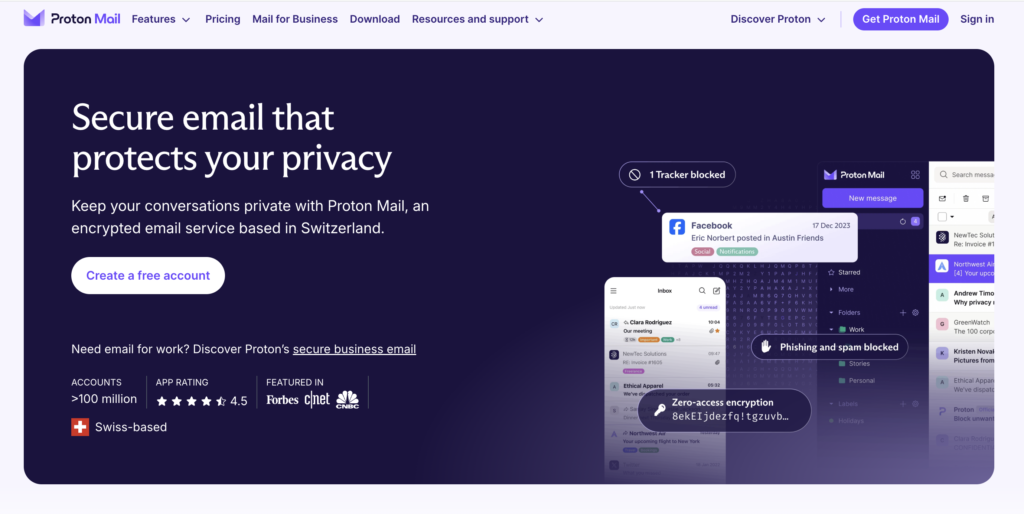
Proton Mail (Switzerland)
Ever since Proton Mail burst onto the scene, its user base has soared into the tens of millions worldwide. By 2020, it’d already topped the 50-million mark, and it hasn’t slowed down since.
Security
- End-to-end encryption so tight, not even Proton Mail’s own staff can see your messages.
- Swiss data centers, safeguarded by some of the world’s toughest privacy laws.
- Zero-access encryption ensures the content of your emails remains strictly your business.
Anonymity
- Anonymous sign-up—no phone number needed.
- Your IP address is off the radar, making it extra tough to track you.
Usability
- Polished interface on the web, plus iOS/Android apps and desktop access.
- Calendar and VPN come with the Proton ecosystem (VPN is separate, but seamlessly integrated).
- More advanced bells and whistles? You’ll find them in the paid tiers.
Price
- The free plan is generous enough for everyday emailing, though limited on storage.
- Premium tiers deliver custom domains, added storage, and enhanced filtering tools.
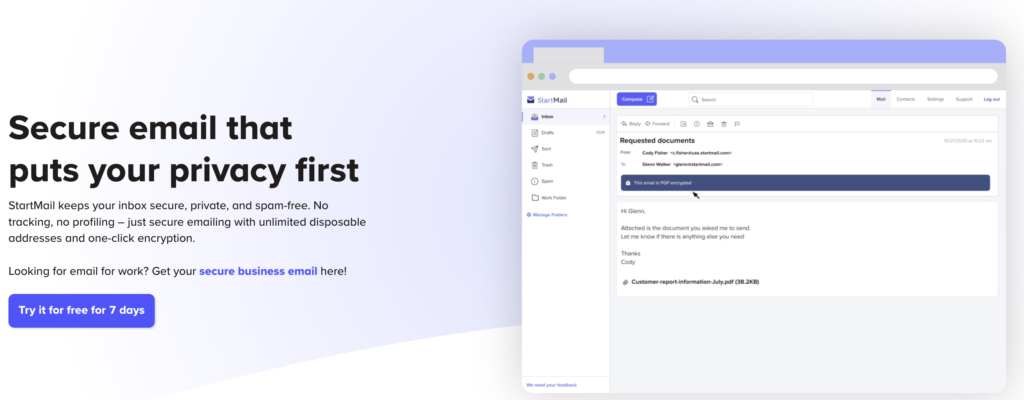
StartMail (Netherlands)
Approximate User Count
StartMail keeps its numbers close to the chest, but industry estimates suggest a user base in the hundreds of thousands—a healthy mix of individual privacy-focused users and professionals who want GDPR-first email without the noise of Big Tech ecosystems.
Security
StartMail is built by the same privacy experts behind Startpage, so security is baked in from the foundation up.
- Strong encryption during transit (TLS)
- Optional PGP-based end-to-end encryption
- Privacy-focused Dutch jurisdiction, fully GDPR-aligned
- No data mining, profiling, or ad-based scanning—ever
StartMail’s architecture is designed for people who want real control, not pseudo-privacy wrapped in marketing.
Anonymity
StartMail does an excellent job minimizing the personal info you must share.
- Anonymous payment options are available
- No activity tracking
- No IP logging in sent mail
- Burner (alias) addresses provide extra identity shielding
Their philosophy is simple: your email says enough—your personal information doesn’t need to come along for the ride.
Usability
StartMail is more approachable than many hardcore privacy services.
- Clean, modern webmail interface
- Unlimited disposable aliases (a standout feature)
- Works with any email client that supports IMAP/SMTP
- Easy import tools for escaping Gmail or Outlook
No calendars or cloud tools built-in—StartMail favors staying laser-focused on just email, not becoming a digital suite.
Price
StartMail keeps pricing straight-forward:
- No free plan, but every account includes unlimited aliases
- Annual billing offers the best value
- 7-day free trial available before you commit
Price-wise, it sits in the middle of the European market: more than budget options like Posteo, but appealing for the features and privacy guarantees.
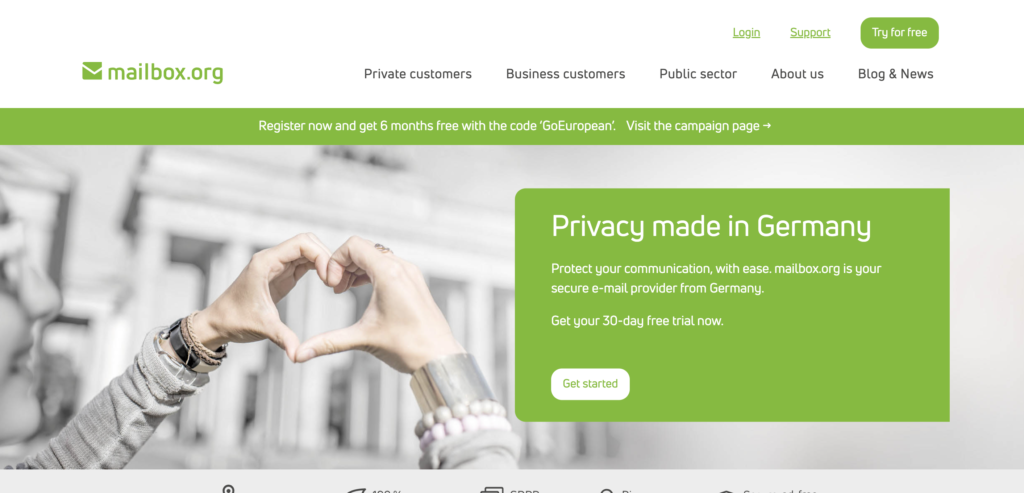
mailbox.org (Germany)
Approximate User Count
No official numbers exist, but mailbox.org is quietly making waves in Germany’s privacy scene. Unofficial estimates peg user figures in the hundreds of thousands, largely on paid plans—proof that plenty of folks are willing to shell out for a more secure inbox.
Security
- End-to-end encryption (via OpenPGP) keeps prying eyes off your mail.
- GDPR-compliant servers, nestled safely in Germany.
- Climate-friendly infrastructure, thanks to CO₂-neutral power.
Anonymity
- You’ll hand over minimal personal data during sign-up.
- Absolutely no ads, no trackers, and no nonsense.
Usability
- A slick webmail interface, plus all the good stuff: calendar (CalDAV), contacts (CardDAV), cloud storage, and even built-in video calls.
- Larger plans let you bolt on custom domains—vital if you’re ditching Gmail for good.
Price
- No free plan, but it starts at a wallet-friendly monthly rate.
- Tiered packages scale up storage and collaboration features.
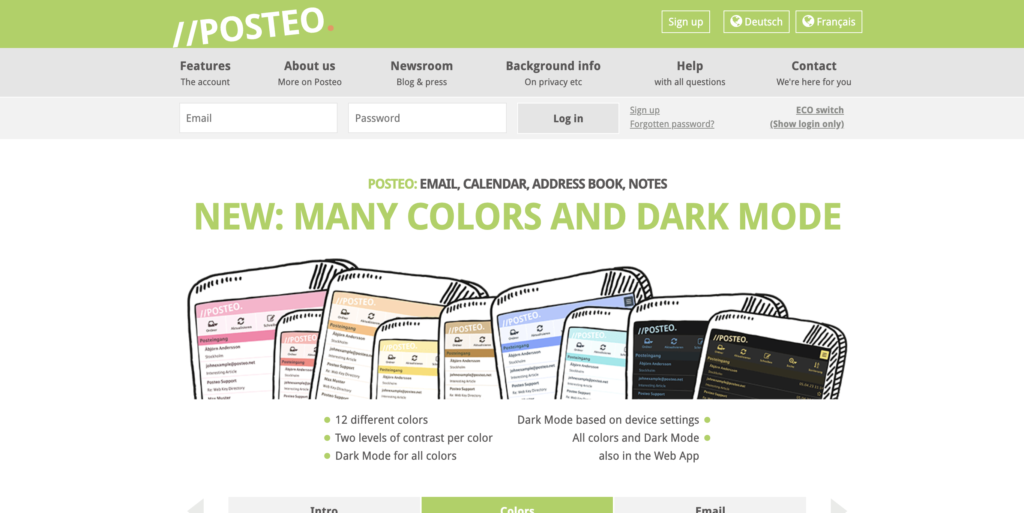
Posteo (Germany)
Approximate User Count
Posteo thrives on user funding—no investors, no ads—so it’s all about substance over flash. While precise data is under wraps, older tallies hint at hundreds of thousands of loyal subscribers.
Security
- Top-tier encryption, plus optional two-factor authentication for extra peace of mind.
- Everything’s Germany-based and fully GDPR-compliant.
- A track record for transparency, with frequent security audits to back it up.
Anonymity
- Join the club without surrendering personal details.
- Completely ad-free, zero third-party tracking.
Usability
- Streamlined webmail—no clutter, no drama.
- Calendar (CalDAV) and contacts (CardDAV) built in.
- No custom domain support, so it’s best for personal users who don’t mind a standard address.
Price
- Low, flat monthly fee. Zero hidden upsells.
- No free version, but the cost is seriously modest.
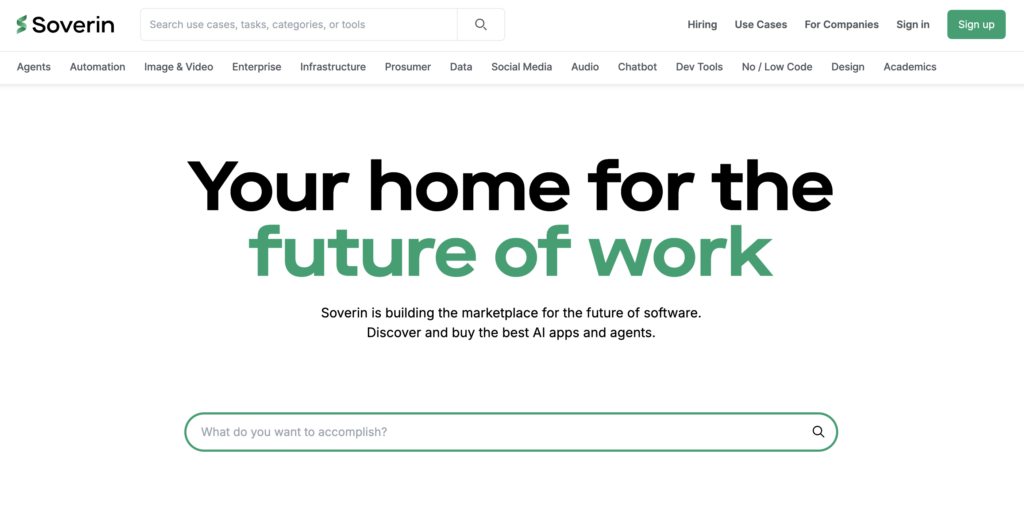
Soverin (Netherlands)
Approximate User Count
Soverin doesn’t brag about user counts, but it’s believed to serve tens of thousands of privacy buffs. The unique draw? Every paid plan bundles a personal domain—taming vendor lock-in before it starts.
Security
- GDPR-compliant Dutch data centers.
- Encrypted connections (TLS) keep your mail safe in transit.
- Boost deliverability with advanced domain tools like DKIM, SPF, and DMARC (if you’re so inclined).
Anonymity
- Basic sign-up details required, but Soverin keeps data collection to a minimum.
- Zero interest in turning user data into corporate gold.
Usability
- Straightforward webmail, plus IMAP/POP3 if you prefer your own email client.
- Calendar and contacts built in, making it easier to jump ship from mainstream platforms.
Price
- Simple annual subscriptions, but no freebie tier.
- Personal domain is automatically included, giving you serious independence.
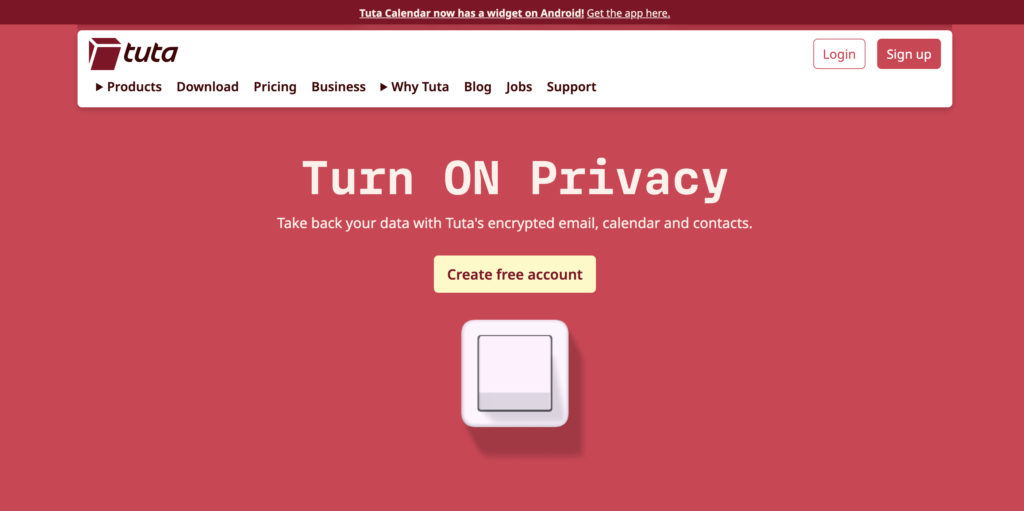
Tutanota (Germany)
Tutanota wears its millions of users badge proudly—some estimates hover between 5–10 million. Whatever the figure, it’s clearly a go-to choice for the privacy-obsessed
Security
- Fully end-to-end encrypted email, calendars, and contacts.
- German servers and GDPR compliance baked in.
- Open-source code invites the security community to keep everything aboveboard.
Anonymity
- Sign up with minimal personal info, or none at all.
- IP stripping from headers means Tutanota can’t track your location.
Usability
- Webmail plus dedicated desktop apps for Windows, Mac, and Linux.
- iOS and Android apps for your on-the-go inbox.
- A self-contained ecosystem, so no plugging into third-party email clients.
Price
- Robust free tier with limited storage.
- Multiple paid plans sweeten the deal: more storage, custom domains, and advanced features.
Comparative Overview (Including Approximate User Counts)
| Provider | Approx. Users | Security | Anonymity | Usability | Price |
|---|---|---|---|---|---|
| Proton Mail | Tens of millions globally (est.) | E2E encryption, Swiss privacy laws, zero-access architecture | Anonymous signup, no phone number required, IP hidden | Polished web & mobile apps, encrypted calendar, ecosystem integrations | Generous free plan + multiple paid tiers (custom domains, more storage) |
| StartMail | Hundreds of thousands (est.) | TLS in transit, optional PGP E2E encryption, GDPR-compliant Dutch servers | Minimal data required, no tracking, burner/alias addresses | Modern webmail + IMAP/SMTP support, unlimited aliases | No free plan, annual subscriptions, 7-day free trial |
| mailbox.org | Hundreds of thousands (est.) | E2E encryption (OpenPGP), GDPR | Minimal data required | Webmail + calendar + contacts + video calls + custom domains | Low monthly subscriptions |
| Posteo | Hundreds of thousands (est.) | Strong encryption, GDPR, 2FA | Anonymous signup, no personal data | Simple webmail, CalDAV/CardDAV, no custom domains | Low monthly fee, no free plan |
| Soverin | Tens of thousands (est.) | TLS in transit, GDPR | Limited sign-up data | Webmail + IMAP/POP3 + calendar, personal domain included | Paid plans only, domain included |
| Tutanota | Millions globally (est.) | E2E encryption, GDPR, open-source | Minimal signup data, IP stripping | Web, mobile, and desktop apps, encrypted calendar | Free plan + paid tiers (custom domains, more storage) |
Which One Is Right for You?
If you want Swiss-grade encryption with a massive global community:
Proton Mail is the clear frontrunner—bulletproof end-to-end encryption, Swiss privacy laws, polished apps, and a generous free tier make it the easiest upgrade from mainstream services.
If you want dead-simple privacy with unlimited aliases and true independence:
StartMail hits the sweet spot. It keeps things focused on email, offers unlimited burner addresses, works with any mail client, and gives you real control without Big Tech fingerprints.
If you’re after an eco-conscious, feature-rich service:
mailbox.org delivers collaboration tools, carbon-neutral infrastructure, and robust encryption, making it ideal for power users who want more than just email.
If you crave a fuss-free, privacy-first approach:
Posteo’s minimalist, ad-free setup makes it a favorite for personal users who want clean design, low costs, and strong ethics with zero tracking.
If you want a custom domain baked into the deal:
Soverin includes one automatically, giving you instant ownership of your digital identity without extra upsells.
If you dig open-source ethos and want a solid free tier:
Tutanota delivers encrypted email, contacts, and calendar right out of the box—with a free plan that’s plenty for everyday use and paid upgrades when you want more.
Conclusion – Europe’s Top Email Providers
Choosing a European email provider isn’t just about escaping the noise of ads or the creepiness of data mining—it’s about deciding who you trust to handle one of your most personal digital assets. And in a landscape shaped by strong privacy laws, transparent practices, and user-first design, a few services rise above the rest.
Proton Mail sits firmly at the top. With Swiss-level privacy, airtight end-to-end encryption, polished apps, and one of the largest privacy-minded user communities in the world, it’s the natural choice for anyone who wants maximum security without sacrificing usability. If you want a service that “just works” while keeping your inbox truly private, Proton is hard to beat.
Right behind it is StartMail, a service that takes a refreshingly straightforward approach to privacy. Unlimited aliases, no tracking, GDPR-strong Dutch protections, and full IMAP/SMTP support make it ideal for people who want serious control without juggling an entire ecosystem. It’s private email done cleanly and intentionally.
From there, the remaining providers each carve out their own niche:
- mailbox.org shines for collaboration features and eco-friendly infrastructure.
- Posteo offers a simple, ethical, ultra-private experience perfect for personal use.
- Soverin stands out if you want a personal domain included from day one.
- Tutanota brings open-source transparency and a generous free tier to the table.
In the end, your choice comes down to what you value most—maximum anonymity, rich feature sets, future-proof encryption, or plain-and-simple privacy. But one thing’s clear: Europe’s top providers are setting a new bar for secure communication. Whether you choose Proton Mail, StartMail, or one of the others, you’re stepping into an inbox built for the privacy-first future the internet desperately needs.
FAQ:
Switching can be remarkably smooth—most providers let you import existing emails, contacts, and calendars with a few clicks or by using IMAP. Some, like Soverin, make life even easier by bundling a custom domain in the subscription, which helps dodge future migrations. Proton Mail and Tutanota also have tools to migrate your data, though you might need a paid plan to unlock all the bells and whistles.
Absolutely. End-to-end encryption (E2EE) and GDPR compliance are more than just buzzwords—they’re the foundation of these providers’ entire ethos. mailbox.org and Posteo, for instance, are fan favorites among small businesses and freelancers who need a dependable inbox without the privacy trade-offs. For top-notch encryption and legal backing, Switzerland-based Proton Mail offers Swiss privacy laws plus robust E2EE.
If you need reliable security on the cheap (or free), Tutanota tops the list with a solid no-cost tier. Proton Mail also offers a free plan, though storage is limited. For those who can swing a few euros each month, Posteo and mailbox.org are well-priced, while Soverin makes sense if you’re craving a personal domain in the deal. Ultimately, each provider hits a different sweet spot—but Tutanota’s free tier is hard to beat if you’re truly pinching pennies.


